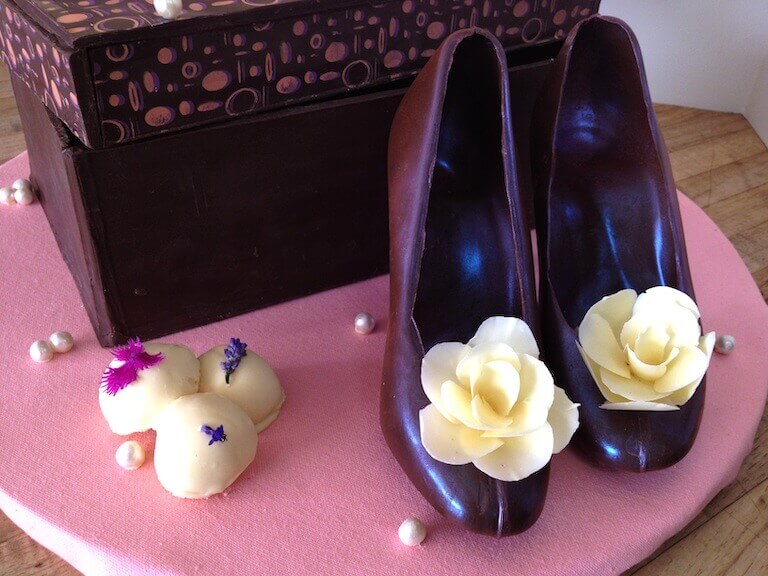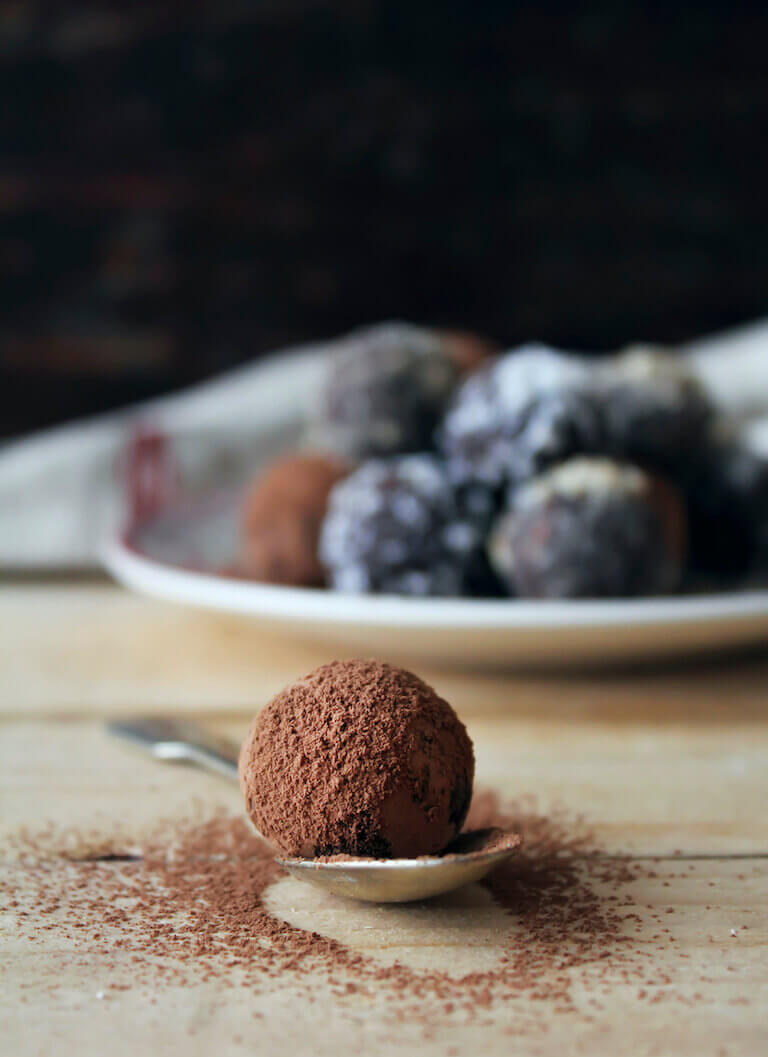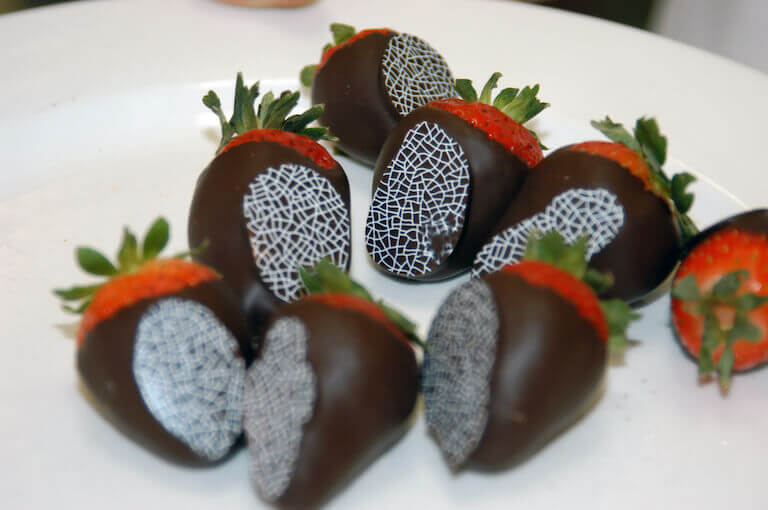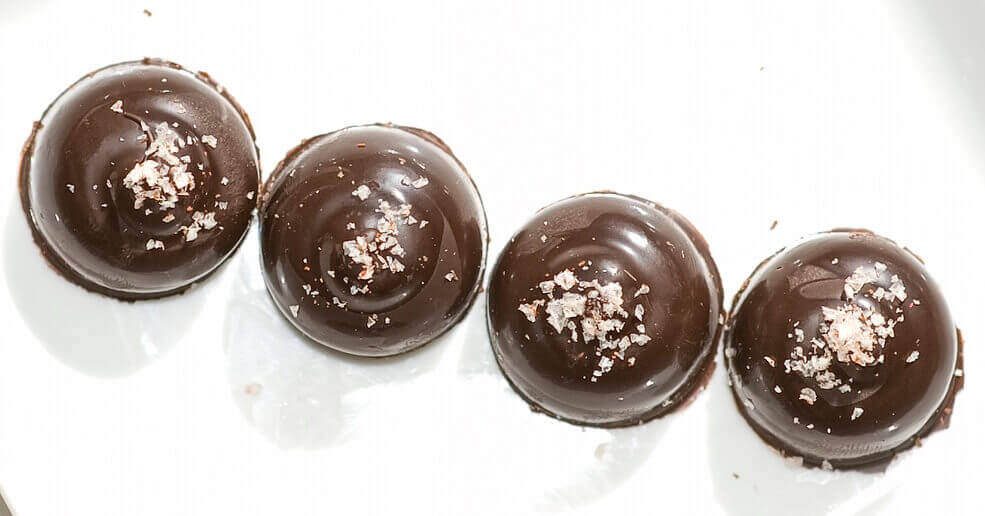Is the answer to the question, “Would you like to see the dessert menu?” always a resounding YES?
Do you take every opportunity to try a new bar or make a new cocoa-based treat?
Is Chocolat your favorite movie?
If this sounds like you, you may have the makings of a chocolatier. These chocolate experts make goodies like truffles, chocolate-covered fruits or nuts, bars, bonbons, and even chocolate showpieces for bakeries, chocolateries, hotels, and restaurants.
To become successful in this field, you’ll need to work hard and of course, taste lots and lots of chocolate. Sound like a career you could sink your teeth into? Here’s how to become a chocolatier.
Start With the Chocolate Basics in Baking & Pastry School
Chocolate is highly technical. In fact, it may be one of the most technical niches within baking and pastry arts.
This is why a proper education is crucial to a future as a chocolatier. While this education doesn’t have to come in the form of a formal baking and pastry school, a degree or diploma can be a major asset as you start your career.
At Auguste Escoffier School of Culinary Arts, baking and pastry students can study the proper techniques in buying, storing and melting chocolate; chocolate tempering; making chocolate candies, truffles and pralines; molding and finishing techniques; chocolate decorations; and showpiece design and execution.
Chocolate education is only part of what students explore in pastry school. They also practice dozens of other techniques that can be helpful in their future work, like cake design and decorating (excellent skills for piping out delicate embellishments). They also explore the greater world of pastry, where they may be inspired by new-to-them flavor combinations from around the globe.
Each baking and pastry program at Escoffier culminates in a hands-on industry externship that gives students the chance to get real world experience in their desired specialty within the industry. Those who wish to work with chocolate should find an expert chocolatier where they can practice their skills and continue to build their knowledge and skills.

A chocolate sculpture by an Escoffier Baking & Pastry Arts student
If you’re concerned that you don’t have time to attend full-time baking and pastry school, consider getting your education online! Online pastry school allows students work from home, learning the same fundamentals and techniques as on-campus students with greater flexibility in their schedules.
Prime your Palate (Eat Some Chocolate!)
Chocolate is extremely complex, with characteristic aromas, flavors, and mouthfeel. And each piece of chocolate is different, with its own unique ratios of cocoa beans, cocoa butter, sweetener, and other flavorings.
Like a sommelier with wine, a chocolatier must be able to isolate and identify the different flavors they’re tasting in order to perfect their creations. Luckily, this means you’ll have to taste lots and lots of chocolate.
A chocolate tasting wheel can help you to identify what you’re tasting and smelling. And you may want to keep a chocolate tasting journal to note what you’ve had and what you thought of it. Perfecting your palate is the work of many years—but there’s no better time to start than the present!

Practice Your Basic Skills
Chocolate is delicate, and must be handled with skill and precision. Chocolatiers must temper their chocolate, heating and cooling it correctly to make it stable and stiff when cool, with a smooth, glossy finish. Even changes in the room’s conditions, like increases in heat and humidity, can impact the tempering result.
Mishandled chocolate can lead to bloom—those grey or brown streaks that you see in some low-market chocolate bars. Bloom can indicate that sugar crystals have formed on the surface of the chocolate, probably due to high humidity or the introduction of moisture during tempering. Or it can mean that the fat from a filling migrated through the chocolate. Bloom isn’t harmful, but it is unsightly.
Perfectly tempered chocolate is just one of the skills that chocolatiers must master before they can make beautiful, customer-ready chocolate desserts. This means they’ll have to practice quite a bit—both on their own and in the workplace—to reach the top of the profession.

“I’ve had many showpieces fall because I didn’t really understand engineering at the time. I had a lot of failures, and you have to have determination to go forward. The thing that drives me the most is my passion for the art of pastry. So whether it’s cakes, showpieces, plated desserts, or just making you a brownie, my passion lies in that craftsmanship.”Chef Tracy DeWitt, Escoffier Chef Instructor and 2006 National Bread & Pastry Championship Winner for her team’s 30 lb chocolate showpiece
Work for an Experienced Chocolatier
Chocolatiers can make hundreds, even thousands, of perfect bonbons, truffles, bars, or chocolate-dipped fruits and candies each day. It’s a skill best honed through practice under expert supervision.
A high-level chocolatier can help the newbie to sharpen skills and improve efficiency. They’ll have tips and tricks that they’ve learned over the years, and they may be willing to pass those on to you. After a few years of focused practice and learning everything you can under an expert, you may be ready to call yourself a chocolatier.

Bring People Joy Every Day: Become a Chocolatier!
Finicky and sublime, chocolate is a niche well worth pursuing. It’s a way we celebrate, treat ourselves, and share our love for others.
Escoffier’s roster of Chef Instructors includes chocolate experts who have worked in bakeries, restaurants, and chocolateries, perfecting their approach. They’re ready to share what they know with the next class of chocolate enthusiasts. Will you be among them? Contact our Admissions Department to explore your next steps!
To learn more about careers in the baking and pastry arts, try these articles next:



